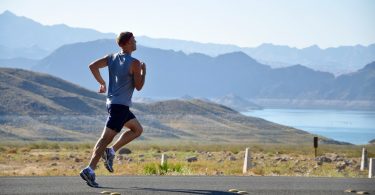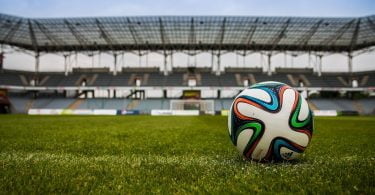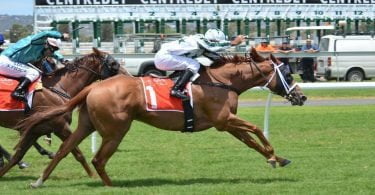Everything about the scene seemed a little ashen.
Everything about the scene seemed a little ashen. The grey hue rusting the hairline, the pallid face weathered with self-doubt, even the tasteless beige surrounding encasing the mea culpa. Tantamount to this, his utterances were colourless, devoid of any energy. Hesitations, yawning pauses and stuttered responses littered his account of the actions that have triggered a most thorough dismantlement of his once untouchable character and standing.
Here lies Lance Armstrong, the omnipotent Tour champion who could weave a desired fabric of truth with his hands and incubate it with callous deceit and slander. That man is buried, his prized, if belated, confession on Oprah Winfrey’s network amassing to nothing more than a codifying grave inscription to that falsified hero.
Perhaps what made for the eeriest viewing was the frailty evident in a man who has always cast himself, often with self-delusion, as utterly invincible. Imperfections were suddenly abound in a man who for over a decade strived to preserve a fabled life which he now acknowledges was unsustainable, or to quote “too perfect.” The blood transfusions, a taste for the blood booster EPO, the vehement concealment and the malignant character assassinations, were all begrudgingly confirmed by a haunted Armstrong.
He aligned illicit doping with “putting air in our tires,” a stance which bespeaks the nonchalance in which the culture of the sport once practiced grievous cheating, and all but retired the principled minority that resisted its alluring grips.
None of this was revelatory, perhaps only his staunch denial that he has abstained from doping since his original retirement in 2005 carried enough originality to raise the audience’s collective right eyebrow. Rather than pursue the sporting angle, in true Operah fashion, the spectacle swiftly morphed into an insightful glance at a quasi-counselling session – the promised cross-examination tactics never materialising. Compounding the therapeutic tone, there were the Americanised platitudes of “I hated the guy I was” and “I’ll spend the rest of my life apologising” which were verging on the unpalatable.
The veracity of these sentiments can be contested depending on the mercy of the viewer; however, what is incontestable is that choosing to conduct your repentance within the dramatised confines of a stage-produced Oprah extravaganza, only breeds opportunity for readings of artifice and self-interest. Had he first greeted USADA (the sanctioning body that rescinded his seven tour victories) with a private, comprehensive disclosure of the underhand strategies he injured himself to, his rationale could be positively attributed to salvaging the besmirched integrity of cycling. Evidently, the need to regain the fanfare of the ‘Mr America’ caricature supersedes the urgency to shorten his sanctions and, pertinently, to diagnose the cancer of the sport that gave him everything.
Notwithstanding these critiques, hearing Lance precisely detail how his son blindly defended his forlorn father from the betrayed masses on social networking sites was a touch heart-rending. The lie was never supposed to swell to such span; the shrouded double life of Lance Armstrong entailed presidential visits, charity orations and figurehead sponsorship. One lie had to beget another, to the extent that family members became clueless victims in the fraud.
Much of the media has focussed on the authenticity of Armstrong’s remorse, and lent opinion as to whether his performance on Oprah could be deemed genuine. Lance has been blacklisted as Satan in some quarters, but does he really have the neurotic audacity to spin tales using aggrieved family members to court public sympathy? I’d be inclined to say no, yet Lance descended on his dalliance with Oprah with a troupe of eleven lawyers and, of course, a professional ‘crisis manager’.
If he was primed to impart the unedited truth of his ill-conceived past he’d need only his mother for morale support.

If its forgiveness Lance is craving, he must endure a torturously long road of rehabilitation under the vigil of a distrusting public consensus. Unlike other riders who were unmasked as dopers, Lance protected his fiefdom with a cocktail of extortion, threats and litigation. Sending the text “walk, don’t run” to the wife of Christian Van De Velde (an ex-team mate who testified against Lance to USADA) is encoded with due malice and intent to render it a case for law enforcement, rather than a doping agency.
Lance is rightly painted as a mafia kingpin for the desperate and pernicious methods he employed to safeguard his, ostensibly, heroic narrative. As he put forth in the interview personal apologies and decades of penitence are warranted by Betsy Andreu, journalist David Walsh and ex-US Postal soigneur Emma O’Reilly, all who were publically lynched over the last decade for the revealing the realities of the seedy champion’s underworld.
Just as Armstrong once relished wielding his reach in the media to aim the multitude’s vitriol at his accusers, those same vindicated folk must be watching with glee as the Texan toils, trips and squirms under his own sentence of suffering.
Returning to the sporting thread, it was instructive to hear Lance describe his life-long prohibition from professional sports, decreed by USADA, as a “death sentence.” For the uninformed listener this may seem to lack requisite contrition, but I have to side with Lucifer on this count. Lance is not the first to protractedly lie about doping offences: Floyd Landis created a ‘The Floyd Fairness Fund’ drawing upon public money to finance his legal proceedings before admission; Tyler Hamilton sold merchandise emblazoned ‘I believe Tyler’ to bankroll litigation before his admission. They are now free to compete at their discretion, have retained the majority of their results, and are penning their pitiful pastimes to the sound of gathering banknotes.
If Lance divulges to USADA all of the sordid doctors, affiliations and Machiavellian regimes he utilised to evade capture in his pomp, his censure should be palliated accordingly. His problem is that Oprah masquerading as an anti-doping agent, simply does not hold such sway.
So if the last rites have been delivered and the casket lowered on the brazen, “secular Jesus” which was the Lance Armstrong of old, what will his reincarnation encompass? He cannot reinvent himself as an anti-doping advocate. He is a pariah in cycling and loathed by the emergent generation who once idolised him. Nevertheless, he must share his tale, not for personal resurrection but to culminate this interminable catharsis that has befallen the sport.
Who could deny that curiosity would bewitch them to watch an aged Lance Armstrong attempt to expiate his sins in licensed World Triathlon Championships? The retribution pretext would be compelling, but the audience should really practice indifference. Armstrong had his opportunity to lawfully captivate the masses with his sporting prowess, but elected to endorse a blood-curdling pathology at the heart of cycling. His abilities deserve to be forgotten.
The media savours the downfall of celebrated figures. It re-establishes moral benchmarks to shun and attaches villainy to icons we seem to presume are serving us. I hope the Oprah interview signals a cessation to the column inches, debate and concerted efforts dedicated to this sorrowful saga. On January 20th, entirely unheralded, the first World Tour Event of the cycling calendar inaugurated in Adelaide, Australia. It is a year that promises much: stampeding sprints headed by Mark Cavendish, duels between mountain goats Andy Schleck and Alberto Contador, and Bradley Wiggins’ arduous task of retaining the Tour De France despite inter-team adversary Chris Froome’s selection as team leader.
Cycling, for most, is an obscure sport, but it is irrefutable that the agonising feats of human endeavour to be authored this term will prove more gratifying viewing than any Oprah expose of a shamed former champion. With the past now uncovered, let the future seize the headlines.
What do you think of the Oprah interview? Do you still believe in Lance Armstrong? Have your say in the comments section below, on Facebook or on Twitter.
Banner photo courtesy of Flickr user lwpkommunikacio.
Article photo of Armstrong at the Tour de France in 2004 courtesy of Flickr user wjarrettc.








